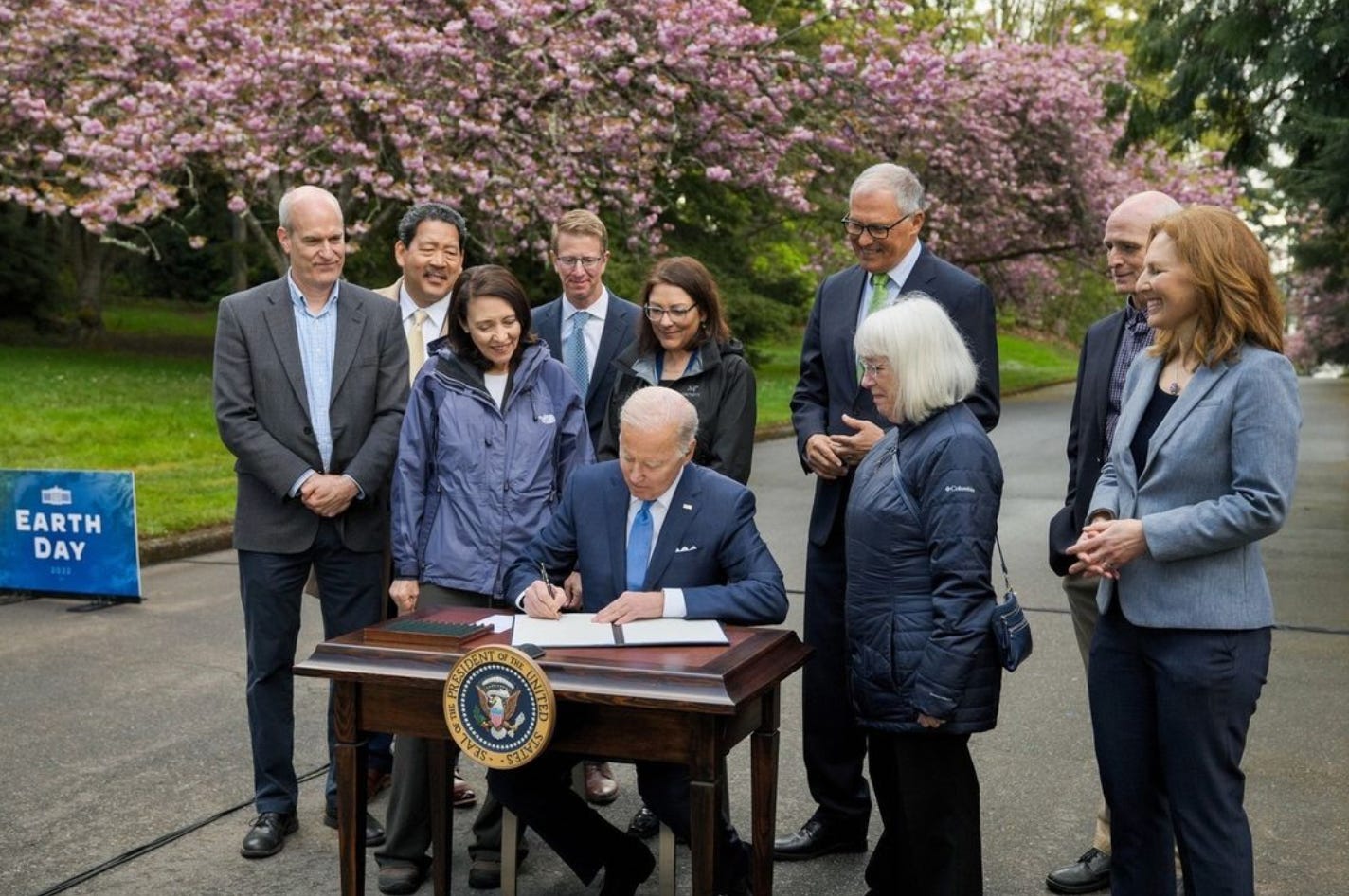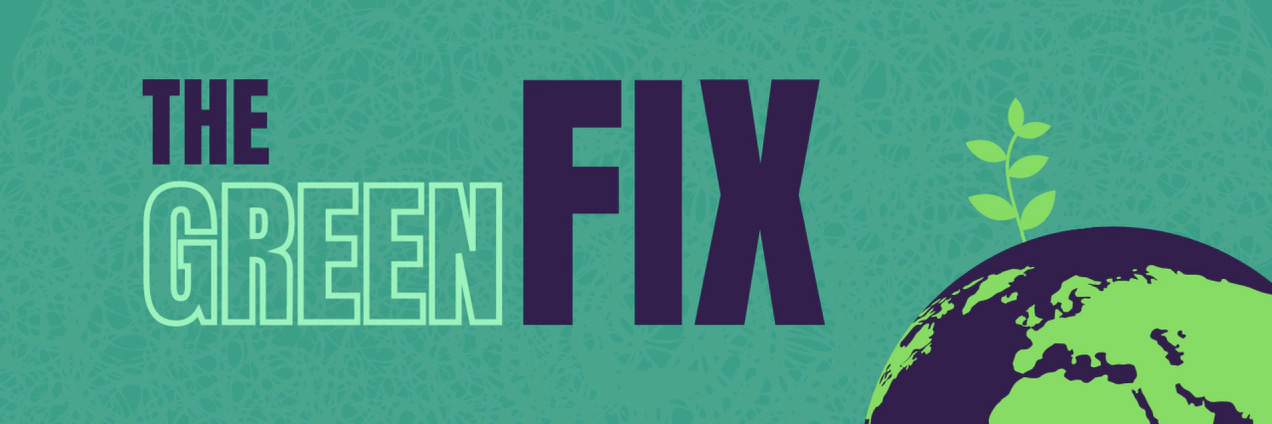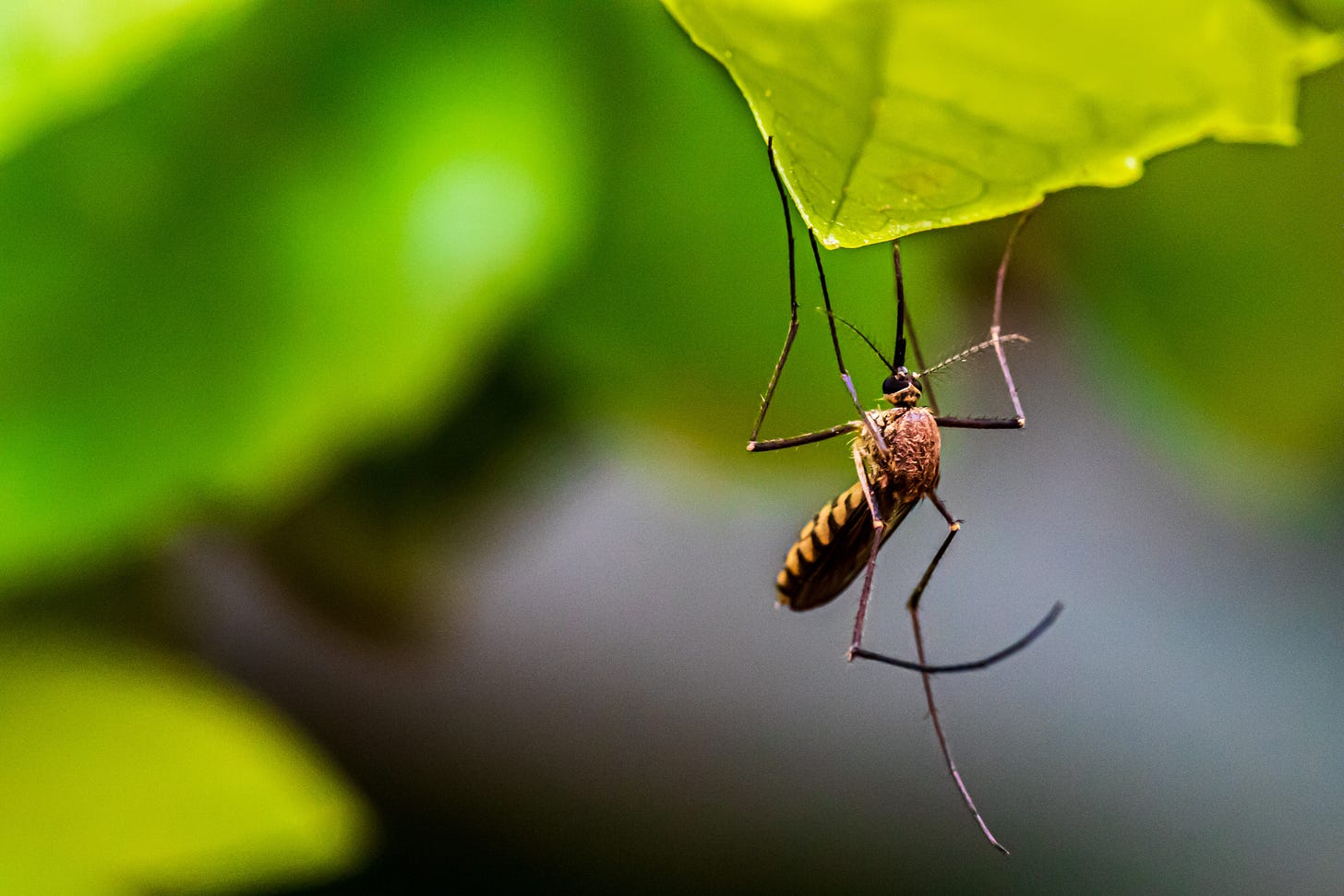Welcome to Planet Days, a five-minute roundup of the latest climate news and what it means for our Planet. If this was forwarded to you, smash that subscribe button:
Last week, Tesla’s profits hit record highs, Antarctica’s sea ice hit record lows, and South Africa reeled from the aftermath of historic flooding.
In case you missed it, here’s what else happened around the Planet.
Monday, April 18
Social media boosts climate denial
Many of the world’s biggest social media companies are “leaving the public in the dark” on their policies to fight climate misinformation on their platforms, according to a new report.
The report — released by environmental groups Greenpeace, Friends of the Earth, and Avaaz — ranked Facebook, Twitter, TikTok, Pinterest, and Youtube on how effectively and transparently they address fake news about climate change. While some are better than others (Pinterest is at the top), all five had serious downfalls. Read more from The Hill.
Tuesday, April 19
America's polluted air and endangered waters
The United States is struggling to keep its air clean. Between 2018 and 2020, the world saw the highest number of “very unhealthy” and “hazardous” air quality days on record, the American Lung Association announced Tuesday.
Despite improvements in air quality over the last 50 years, more than 137 million Americans, a majority of them people of color, live in counties with unhealthy air — a trend partially driven by wildfires, CNN reports.
American waters aren’t safe, either. This week, the advocacy group American Rivers announced the country’s 10 most endangered rivers, with the mighty Colorado River topping the list. By 2050, experts say the Colorado's flow will fall 10–30% because of climate change, reports Axios.
Wednesday, April 20
Germany to get off Russian oil
Western countries continue to punish Russia for its invasion of Ukraine: On Wednesday, Germany said it would halve its imports of Russian oil by summer and phase out Russian oil completely by the end of the year.
The country, which gets 25% of its oil and 40% of its gas from Russia, also said it would soon ban Russian gas. The move comes after the European Union banned Russian coal earlier this month.
But punishing an autocratic regime with global ties isn’t easy. China is undermining some of these moves by cashing in cheap Russian coal. Plus, officials in the U.S. and Germany warned that banning Russian energy could send Europe into a recession. Sky News has more.
Geoengineering can trigger malaria outbreaks
To counter the climate crisis, we must pull out all the stops. And that may mean solar geoengineering, the controversial practice of spraying chemicals into the sky to reflect sunlight and cool the Planet. New research, however, says not so fast.
The study finds that solar geoengineering could increase the spread of malaria, exposing up to a billion people to the mosquito-borne disease. By creating an artificial sunshade, geoengineering could let the deadly disease thrive in areas that otherwise would become too hot for survival, like low-lying parts of Africa and southern Asia.
“There’s a lot of research on the potential of geoengineering to reduce hazards, like extreme heat and sea-level rise,” study co-author Christopher Trisos told The Atlantic. “But you can’t just assume that geoengineering universally reduces risks to people.”
Thursday, April 21
Bad news for bugs (and the Planet)
Speaking of insects, a warming Planet could be driving down bug populations, according to new research. The study finds that the impacts of climate change and big agriculture are hurting insect numbers and diversity.
In warmer areas with intensive agriculture and pesticides, insect populations dropped nearly 50%, with 25% less species. That could spell trouble for the Planet, as insects boost ecosystems by pollinating plants (including crops) and providing food to animals. NBC News has the story.
Friday, April 22

Biden’s second Earth Day
Last Earth Day, U.S. President Joe Biden was kicking ass and taking names: His Earth Day summit, attended by 40 world leaders, led to a slew of climate commitments, including the U.S.’s pledge to cut 50–52% of greenhouse gas emissions by 2030.
This year, it’s a little different. Hampered by the war in Ukraine, rising gas prices, and a gridlocked Congress, Biden’s climate priorities have been pushed aside for moves like opening up public lands to more oil and gas drilling.
But it’s not all a wash. On Friday, the president signed an executive order to protect and restore some of America’s oldest forests. And earlier in the week, the administration restored the National Environmental Policy Act, a bedrock environmental law that requires climate impacts to be considered for infrastructure projects. The Associated Press has more.
Sunday, April 24
Macron’s win keeps France’s climate hopes alive
Europe and its climate ambitions can breathe a sigh of relief. French President Emmanuel Macron beat out far-right candidate Marine Le Pen, keeping alive many environmental promises he made on the campaign trail.
Throughout his campaign, Macron vowed to reduce air pollution, plant 140 million trees, fight for a European carbon tax, and expand nuclear reactors and offshore wind. Le Pen, meanwhile, attacked wind and solar energy, saying she’d dismantle the country’s wind farms.
But we’ll see if Macron sticks to his word: Advocacy groups have slammed the president for failing to make good on climate pledges over his first five years in office. The Guardian covers the election.
Bonus

What we’re reading
To write Planet Days every week, we read hours of news and subscribe to countless newsletters. And one climate newsletter recently caught our eye: The Green Fix.
The Green Fix is a “twice-monthly newsletter for anyone who wants to do more for the climate crisis but is busy and bombarded with information,” Cass Hebron, climate justice writer and founder of The Green Fix, told us. Plus, every week the newsletter provides resources to fight the climate crisis, from traveling sustainably to avoiding burnout.
Have a great week,
Brandon and Sam






